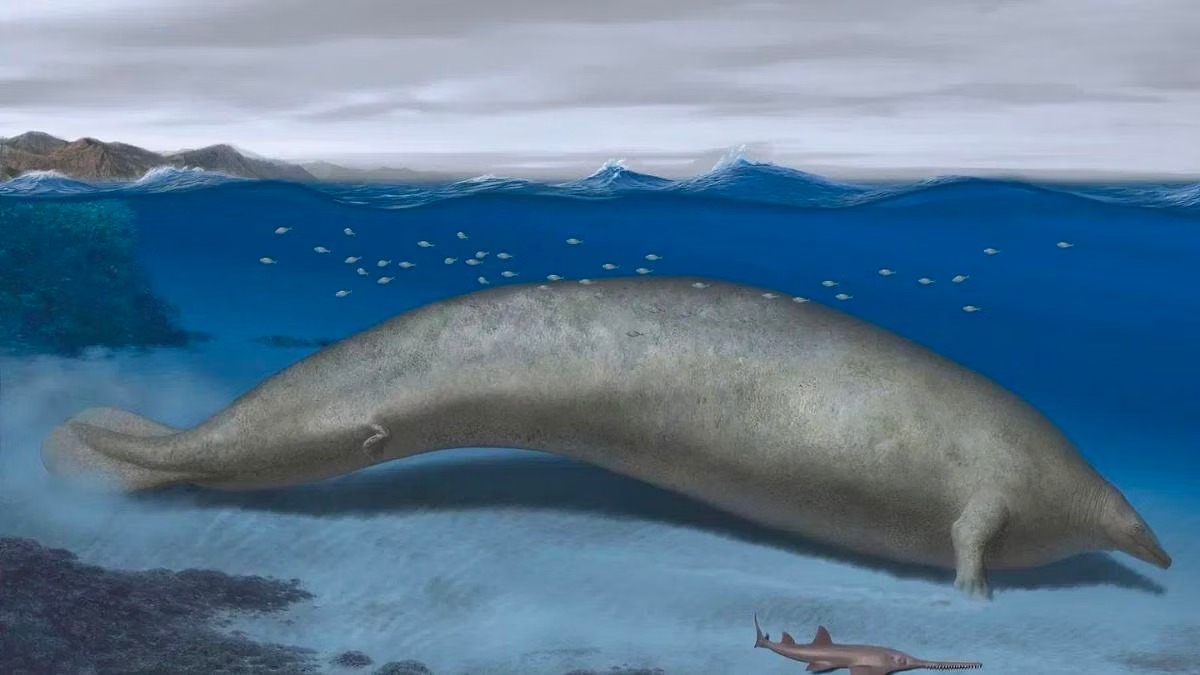A groundbreaking discovery in the world of paleontology has shed enough light on an extinct whale species- Perucetus colossus, believed to be the largest mammal ever to have lived on Earth. Unearthed in the Ica desert in Peru, this prehistoric basilosaurus whale has astonished scientists with its massive skeletal mass, weighing up to 340 metric tons. The study on Perucetus colossus has been published in the journal Nature, and sheds light on previously held beliefs about cetaceans’ size and adaptation to different environments.
The Perucetus colossus, has been named for its colossal size and discovery location, Peru. It belongs to the basilosaurus whale genus, and inhabited on the Earth over 38 million years ago during the late Eocene epoch. The recent study, conducted by a team of international researchers, reveals that this ancient whale possessed the highest skeletal mass ever recorded, surpassing even the modern blue whale, which weighs between 180 to 200 metric tons.
A Paradigm Shift in Cetacean Evolution
Traditionally, scientists associated the increase in body size among cetaceans, which include whales, dolphins, and porpoises, with their transition from terrestrial to aquatic environments. This evolution was believed to enable them to become active swimmers in deep waters. However, the discovery of Perucetus colossus challenges this long-held assumption.
Instead of adapting to deep waters, it appears that the ancient whale’s impressive size and skeletal body mass were advantageous in shallow waters. This indicates that the Perucetus colossus might have thrived in shallower habitats, contrary to what was previously believed about the evolution of size in cetaceans.
The Peruvian Connection
The significance of the Perucetus colossus discovery goes beyond its enormous size. The fossils were unearthed in the Ica desert in Peru, contributing to the species’ name, ‘colossal Peruvian whale.’
Further, the discovery of the Perucetus colossus underscores the importance of paleontological research in enriching our understanding of Earth’s history. It serves as a reminder of the need to preserve and protect our planet’s fossil-rich regions, allowing future generations of scientists to unravel more secrets about the evolution of life on Earth.
The groundbreaking research on Perucetus colossus was a collaborative effort by scientists from Peru, Italy, Germany, France, Switzerland, The Netherlands, and Belgium.














